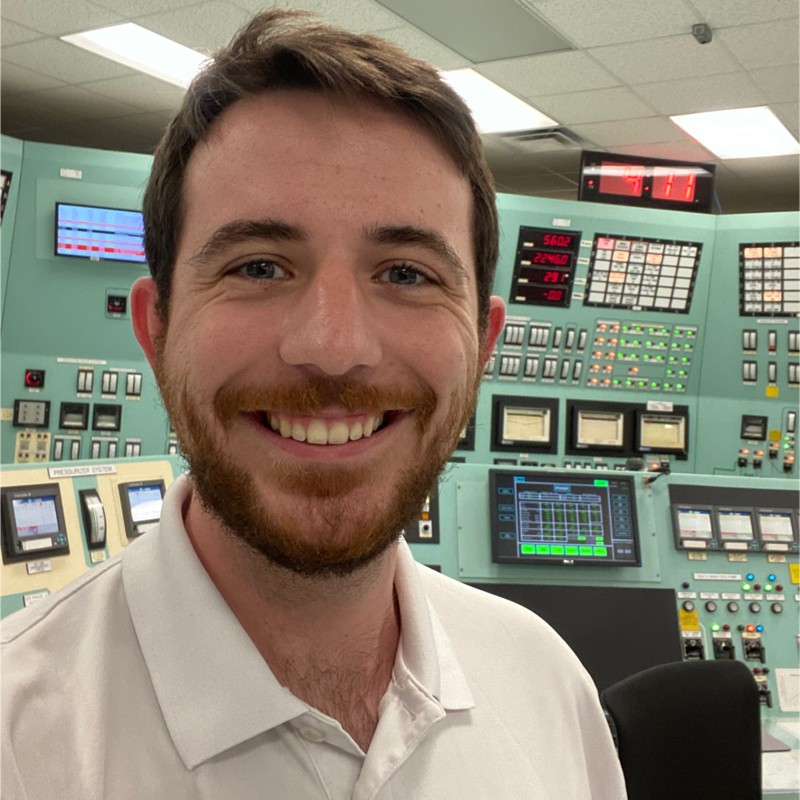
Evan Robinson (MSE ‘19) has used his time at Georgia Tech and the Materials Science and Engineering School to go on to great things. As a Resident Inspector for the United States Nuclear Regulatory Commission (NRC), his work shows exactly how far-reaching the applications of an MSE degree can be.
It was these far-reaching applications that drew him to MSE in the first place. “Material science is really neat because everything is made out of stuff,” Robinson said.
This adage of the field is how he still explains what materials science is to lay people. A degree that has extreme flexibility in the world of engineering. Robinson noted, “most companies have some sort of application for a material science engineer.”
It was also the connection of MSE and physics, one of his favorite subjects, which led him to getting his Bachelor’s degree with MSE.
Like many, Robinson’s story that brought him to his current position is one of having the right skills at the right time to end up somewhere amazing. After graduating with his degree, a company called the Naval Nuclear Laboratory messaged him on LinkedIn, headhunting him for a position they had. Brought on as a civilian to an intensive training program called the Nuclear Power Training Unit (NPTU). Robinson thrived in the academically challenging environment.
“Everyone says it’s even harder than college,” he said of the NPTU, “and I didn’t agree with that assessment… Georgia Tech was academically more challenging.” Leveraging the skills acquired through Georgia Tech’s rigorous academic standards and his extensive engineering experience, Robinson outperformed many of his peers at NPTU and successfully secured a position with the NRC.
Robinson works as an inspector at the NRC and Oconee Nuclear Station. Inspecting equipment, investigating maintenance, and ensuring regulatory compliance. Along with having emergency response responsibilities, he has found that his time with MSE is beneficial in surprising ways. Robinson noted that a lot of his work requires in-service testing, a process that sometimes involves non-destructive examination tests. Many of these techniques were ones he was exposed to in his classes at Georgia Tech, the procedures and experience familiar to him in a way they are not to his colleagues with backgrounds in other engineering fields.
With multiple co-workers, including his supervisor being Georgia Tech alumni, Robinson has many fond memories of his time at Georgia Tech ranging from discussing MSE 2001 experiences with colleagues to memories of Dr. Speyer’s ceramics course. He does have advice for current or prospective students, though. While he was the first to admit that he has had plenty of career success, so things did work out for him, he said, “the one regret I have from undergrad was not finding a good internship that truly spoke to me.”
Alongside finding a good internship, Robinson said, “try not to stress out.” He graduated without a job lined up, and it did take him some time to get onto the career path he is on now; however, he said, “at the end of the day you are going to graduate from a very well-acclaimed school with a very sought-after degree.” He urged students not to fall too much into imposter syndrome and to remember that “you earned your spot here when you were admitted.”
Robinson’s successes are evidence of the impact a degree from Tech and a degree in MSE can have on one’s career. In our continuing efforts to highlight the diverse successes of MSE alumni, we urge all alumni willing to speak about their careers and experiences at Georgia Tech to fill out this survey.